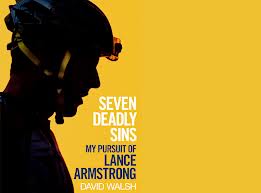
The Godfather Two showed that sequels can better their original by walking the same path but more deftly, building on its foundations with style, wit and great, great writing.
Dunsinane, is technically a sequel but could hardly be described as usurping its predecessor (Macbeth) as David Grieg neatly finds a way of avoiding the direct comparison by writing it in something approaching the modern vernacular.
And so, Macbeth is merely a plot device to set up a thoroughly modern parable on the pursuit of power and the appetite that man (and woman because Lady Macbeth, Gruach, is the hub of all the conflict in this extraordinary play) has for eternal conflict.
“Peace is not the normal state, peace is like the days when the sea is flat calm, the prevailing condition is war.” says King Malcolm (I think, and I paraphrase) to the English commander, and star of the show, Siward played monumentally by Jonny Phillips. And that’s what lies at the heart of this electrifying production; the fact that war is pretty much the need state of those in power, because war makes things happen. And I don’t mean war results in reshaping of civilisation, no, war turns the wheels of industry and is the dynamo for political momentum. The second world war was what got the world’s major economies booming after all. The Gulf War revitalised America’s sluggish economy.
Thatcher knew that when she blasted Argie to kingdom come.
Blair thought he did when he catapulted the UK into the single most futile decade of power-mongering.
However, where Thatcher sensed the mood of the nation and used the Falklands to reignite her popularity Blair just stuck his big bloody size tens in and created an absolute shambles around him. It’s Blair’s approach that drives the narrative of this play because the Post Macbethian 12th Century Scotland is a photofit of the conflicts in Afghanistan and Iraq.
Whilst the English may have assumed that Lady Macbeth (Gruach) left this mortal coil alongside her beloved husband, we soon find out that as the saying goes “to assume is to make an ass out of u and me.” Oh no, Gruach is very much alive and well and, as Queen, she believes her offspring are heir to the throne and by God she’s gonna do her damnedest to give them the chance to take their rightful place – even if that means sleeping with the enemy.
And so, Gruach (a mesmerising, flame haired Siobhan Redmond) emerges as the key political figure in this drama; she calls all the shots and she delivers them in an often tense and powerful dialogue between herself and Siward. Always on the front foot, driving the poor man crazy with both lust and frustration.
Meanwhile, the King of Scotland, Malcolm quietly (weakly?) surveys the scene with an air of weariness and a large degree of slightly camp cynicism, increasingly frustrated by Siward’s inability to strategically manage the conflict. His performance (by Brian Ferguson) is initially hysterically funny but gradually turns colder and more focused as the drama unfolds.
Both the directing (by Roxana Silbert) and the writing by David Grieg are breathtaking. Grieg doesn’t write a script so much as a wholesale political essay on the state of the nation that leaves you almost gasping at its vision and insight. Remember this play was written 18 months before Salmond swept to power in such a way that the state of the Union has never been more open to question in modern times. Surely conflict is a potential outcome.
And it’s the sheer range of this play that impressed me most. Starting out, frankly, like a Monty Python comedy (it really did stir up memories of Life of Brian) it moves gradually through a series of episodes to darker territory. Barely a minute passed in Act One without a chuckle, and often a belly laugh. Act Two starts as it left off, but only for moments before the real meat of the problem is tackled to almost preternatural effect.
Honestly this play reaches right inside of you. It moves along like a runaway Express, charged as it goes by a brilliant folk rock trio that inject pace and punctuation that is echoed by a duet of Gaelic singing lassies. And whilst the ending stutters just a little it’s a lean back moment as the curtain closes and one is transported back into the real world.
Or was what we were watching the real world?
This is Champions League stuff.
I’ve seen several immense performances on the Lyceum stage this year; Stanley Townsend, Peter Forbes and Frances Thorburn in particular, and there have been a number of incredible ensemble casts ; Age of Arousal and Earnest spring to mind.
But this has both.
And this has three, maybe four or five stellar performances; Siobhan Redmond of course, and Jonny Phillips, but so too Tom Gill as the boy soldier, Brian Ferguson as Malcolm and Alex Mann as the hilarious Egham.
Mark my words. They will be talking about this show in hushed tones many years from now.











